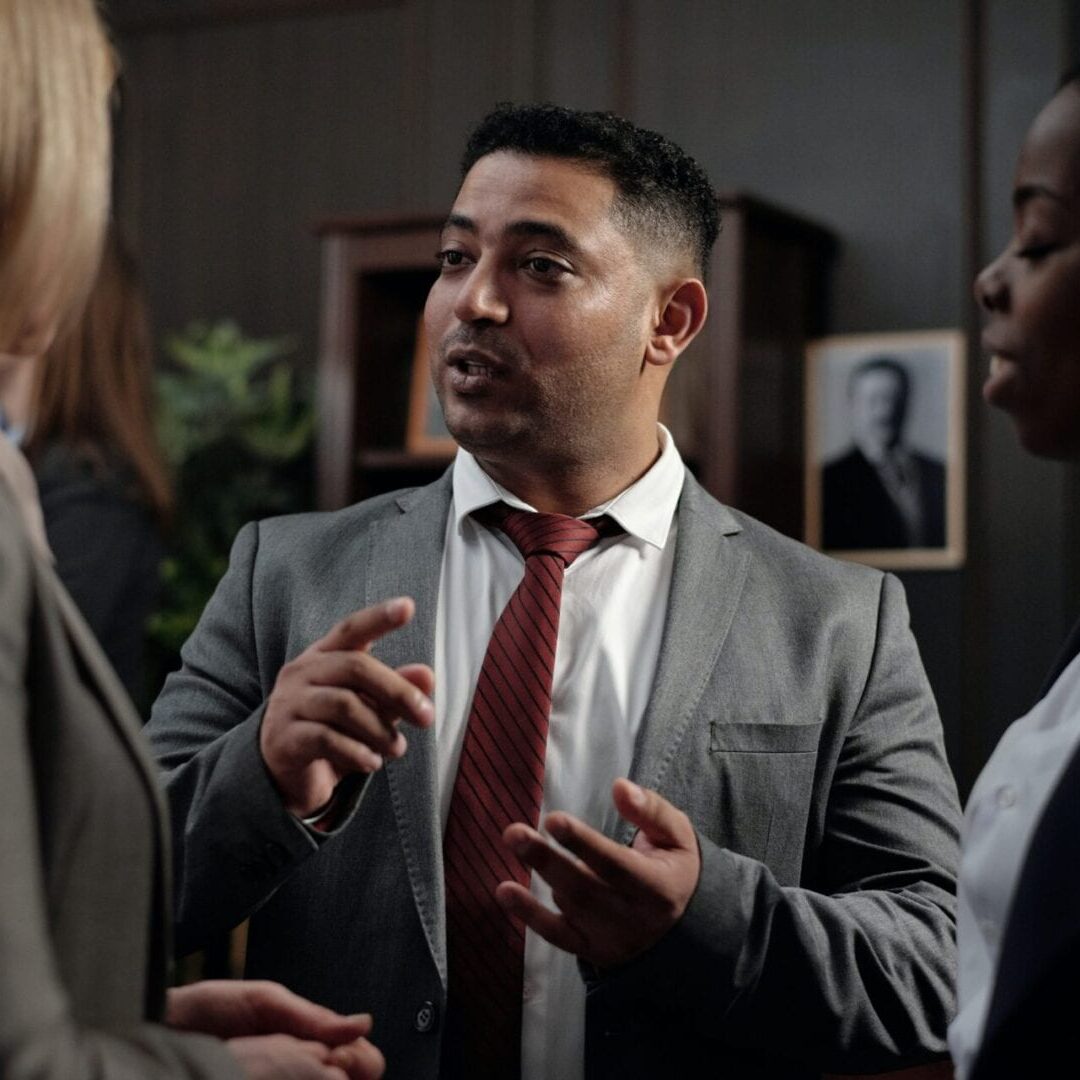Divorce Mediator Serving NYC and Long Island, NY
What is Divorce Mediation?
Just this: Divorce Mediation is a way to resolve and move past conflict.
For as long as there have been people, there have been conflicts. In every family and every relationship, conflicts arise. When there is a reasonable level of trust and communication, these conflicts can be resolved through frank discussion and compromise. But, when divorce is the issue, then trust and communication are often lacking, and it is very difficult, if not impossible, to resolve conflicts.
An experienced divorce mediator solves the trust and communication problems. The mediator opens an avenue for communication that operates despite the hard edges of the conflict between the participants. The mediator supplies the missing trust element by engaging a verification process upon which the participants can both rely. Through divorce mediation, even tough conflicts can be openly dealt with, fairly resolved, and moved beyond.


Do We Need to Get Along in Order to Mediate?
When Henry Kissinger mediated an end to the Middle East War in 1974, the Arabs and Israelis had zero trust, zero communication, and zero goodwill. When the Federal Mediation and Conciliation Service resolves disputes between the largest unions and the largest companies, there is zero trust, zero communication, and zero goodwill. When the Equal Employment Opportunity Commission reports that 96% of employers and 91% of employees would use mediation again to solve problems, they are referring to situations where there was zero trust, zero communication, and zero goodwill. Yet mediation succeeds in all these instances.
It succeeds because people do not need to get along in order to mediate successfully. In fact, the whole point of mediation is to find rational answers for people who don't get along! To mediate successfully, the only thing the people need to agree on is this: a desire to reach fair solutions – even if they differ on what a fair solution might be. If that foundation exists, a skilled mediator can develop answers in a way that makes problems with communication, trust, and goodwill irrelevant and in a way that those qualities may actually improve. A skilled mediator focuses attention on facts and away from fights. A skilled mediator crafts agreement out of adversity. So says Henry Kissinger.
Will I Be Protected In Divorce Mediation?
In divorce mediation, we say: Communicate, Consult, Confirm. Unlike the pressure of a trial or a hearing in the court system, where decisions often need to be made on the spot, mediation is a reflective process where choices and decisions can be carefully considered.
After a mediation conference, take what happens to those whom you rely upon for guidance. This includes parents, friends, clergy, accountants, and of course, attorneys. Acid check the facts and the prospects before you decide on a course of action. You are the decision-maker, not a judge, not your spouse, and not any advisor. If you have confidence that, aided by those you trust, you can make good decisions for yourself; then mediation will allow you to make those good decisions.
No agreement will ever be finalized until both participants have had the full opportunity to be sure about what they are doing.
One more thing: In the event that our Mediator believes that one party cannot make good, independent decisions, and is being bullied or cowed by the other party, then we will not proceed. We will terminate the mediation and direct them to court where a judge will make the decisions for them.


What Is the Divorce Mediation Process?
The Divorce Mediation process starts with an organizational session we call the Roadmap. During this session, we try to identify every issue that needs to be resolved and talk about what information we will need to understand each one. This could involve arranging for house appraisals, financial statements, and asset valuations. At the organizational session, we will also discuss any emergency issues and try to resolve them right away, such as problems with paying bills or problems a child is having at school.
Are There Times When Mediation Is Not Appropriate?
As discussed above, the mediator reserves the power to terminate the mediation if the mediator feels that one person is not able to participate in the process meaningfully. We will not knowingly allow mediation to be used to produce one-sided agreements. So, mediation is not appropriate if either person does not feel capable of speaking privately with the mediator about what is most important to them.
Mediation is also not appropriate when force is being used in some way between the two divorcing people. This can be physical force, such as violence, emotional force, such as intimidation, or economic force, such as impoverishing a person or a household. In all those instances, we would recommend obtaining relief in the form of orders of protection or emergency support orders.


What Does Mediation Cost?
For the organizational session and all subsequent sessions, the cost is $650.00 per session, and each session lasts approximately ninety minutes. Payment for all conferences is expected at the time of the conference. Sometimes, conferencing will take place between the mediator and one or both people between sessions, and when it does, for more than just a few minutes, increments are billed in fifteen-minute segments.
In most cases, the mediation is concluded in six sessions or less.
When an agreement is reached, Mediation Solutions will prepare a draft of the agreement. The cost for this preparation varies depending on the nature and complexity of the agreement involved. Upon filing with the County Clerk's office, there are fees due to the County Clerk directly.
In addition, there may be fees due for appraisals and valuations of certain assets to be paid directly to the appraisers when the matter requires it.
Mediation Solutions was founded by Louis Sroka, Esq., in 2003 as a way to help couples in Nassau County, Suffolk County, and the New York counties, avoid the cost and adversarial nature of a litigated divorce with the help of a trained divorce mediator.
Louis is an experienced divorce attorney who met Jim Chaplin, one of the original mediation pioneers in 1990, and worked together with Mr. Chaplin on mediation cases for several years. During that time, Mr. Sroka was certified by the State of Florida in both general and family mediation.
Our experienced mediators will work with you to settle things so that the needs of both spouses are met with minimal conflict. Both parties can then move on from the divorce with their new lives as quickly and cleanly as possible.
If you think your divorce is a good candidate for divorce mediation, call (516) 931-8900 to schedule your initial appointment.
